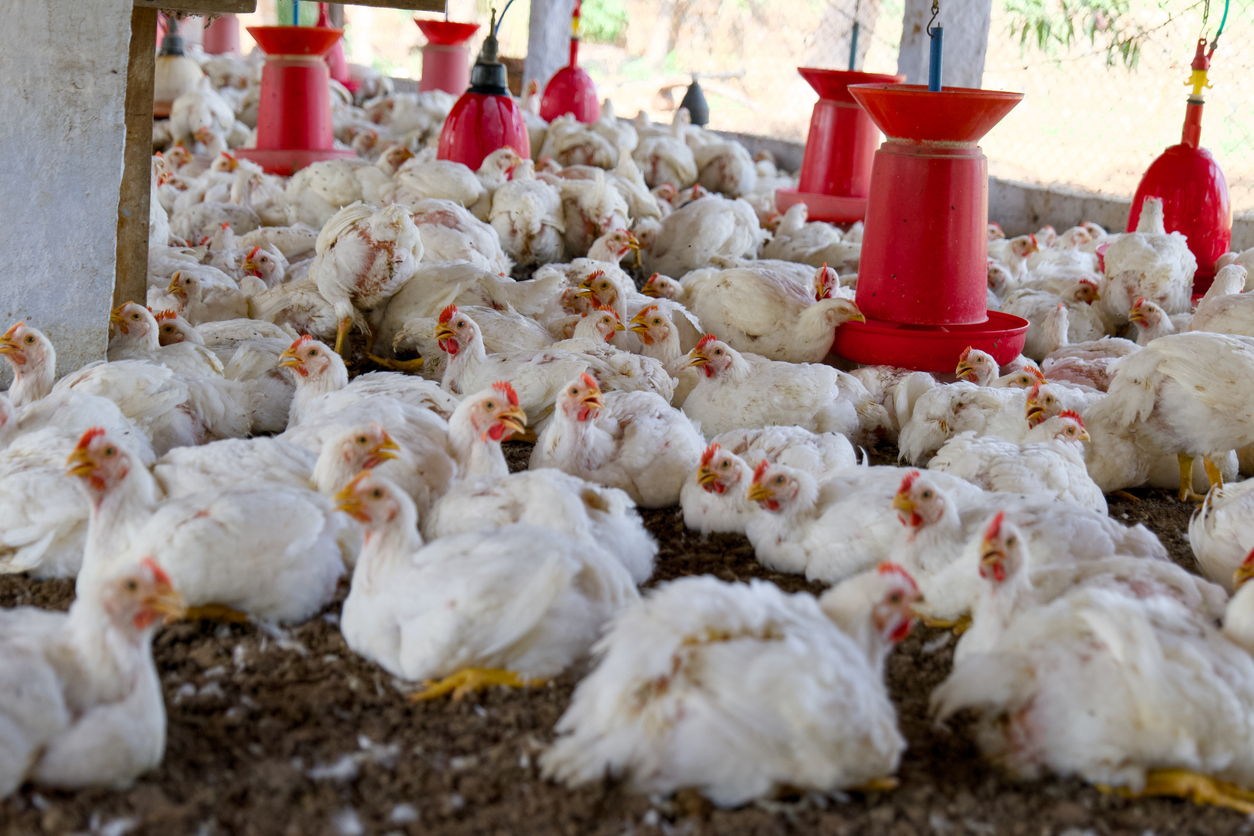Indiana-based animal microbiome specialist BiomEdit has raised an $18.4 million Series B round and is gearing up to launch its first product, an engineered probiotic (BE-101) to tackle necrotic enteritis, a bacterial affliction driving significant losses in the broiler chicken industry.
The round—which was led by Anterra Capital with follow-on investment from animal nutrition co Nutreco and new participation from AgriZeroNZ, Elevate Ventures, and Betagro Ventures—will fund BiomEdit through conditional licensure and into the commercial launch of BE-101.
Spun out of animal health company Elanco in 2022 after partnering with synthetic biology co Ginkgo Bioworks, BiomEdit is working with Diamond Animal Health as its contract development and manufacturing organization to scale production of BE-101. The product, which has entered the final phase of USDA’s conditional licensure process, is expected to launch commercially in late 2026.
To support the launch, animal health industry execs Kristin Bloink (Elanco) and Andrew Carlson (ADM) have joined BiomEdit’s team as VP of development and CCO, respectively.
BiomEdit has also secured over $1.7 million in new non-dilutive grants including an USDA grant targeting avian flu with a novel biologic approach, an NIH award for early research into a human therapeutic application based on BiomEdit’s tech, and a Global Methane Hub grant to support its work exploring enteric methane reduction in cattle.
First-of-its-kind probiotic vectored antibody (pvAb) product
BE-101, which will assume the brand name Optavant upon full licensure, is a first-of-its-kind probiotic vectored antibody (pvAb) product. It comprises a pair of microbes that BiomEdit has genetically engineered to express antibodies to toxins produced by the bacterium Clostridium perfringens, which causes necrotic enteritis.
The product is sprayed on the back of birds the day they hatch. “They then peck and preen each other, and ingest the product which is colonizing bacteria, so they don’t need a lot of it,” CEO Aaron Schacht told AgFunderNews in a recent interview.
“The colony lasts for about two weeks and expresses the biomolecules that target the toxins. We then give a boost in the drinking water to replenish the colony, which gives us coverage for about five weeks of the growth cycle [the typical broiler growth cycle is six weeks].”
Genomic analysis, metabolomic analysis, and proteomic analysis
After the spinoff from Elanco, BiomEdit “took advantage of something Elanco had unique access to, the intestinal or fecal content of thousands of animals, and built a library,” said Schacht. “From 2016 to 2021, we sampled and analyzed over 10,000 samples from 7,500 pigs, chickens, fish, cows, and dogs.
“That was the origin of the sample database that we created, and then we built a platform for culturing these organisms so that we could learn how they grow and then isolate and purify them. And then we could do genomic analysis, metabolomic analysis, and proteomic analysis to see what molecules they made.”
In parallel, BiomEdit built a strain engineering, gene editing, and synthetic biology capability “with the idea that we would find microbes of interest that could produce feed additives or serve as a delivery vehicle for a targeted molecule if they colonized the gut of the animal,” he explained.
While BE-101 is its most advanced product, BiomEdit has multiple products in its pipeline, including BE-01, an enzyme that degrades Lipopolysaccharide, which is found in the leftover cell wall remnants from gram-negative bacteria and serves as a potent inflammatory stimulant across all major farm animal species.
Here, instead of using microbes to deliver the enzyme inside farm animals, BiomEdit uses a microbe to express it at scale, isolate the enzyme and then make the enzyme itself a feed additive. In the process, it had to engineer the host strain to get better at producing and secreting the enzyme, said Schacht. “So there’s an example of where we used synthetic biology to improve a production host.”
He added: “Separately [as with BE-101, for example] we can use synthetic biology to create products where the microbial host is the product, and it expresses and secretes the molecule in situ [inside the animal].”
People have been “feeding probiotics to chickens and pigs and cows forever,” said Schacht. “We want to bring real science to [understand] why microbial solutions work, and use synthetic biology to make them even better.”
Further reading:
BiomEdit CEO: Next gen designer probiotics will disrupt the animal and human health market
🎥 Designer probiotics startup ZBiotics has sold 8 million ‘pre-alcohol’ shots, launched new ‘sugar to fiber’ product
Verb Biotics on next gen biotics: ‘We’re function-first, and we’re not tied into any one organism or flagship strain’
